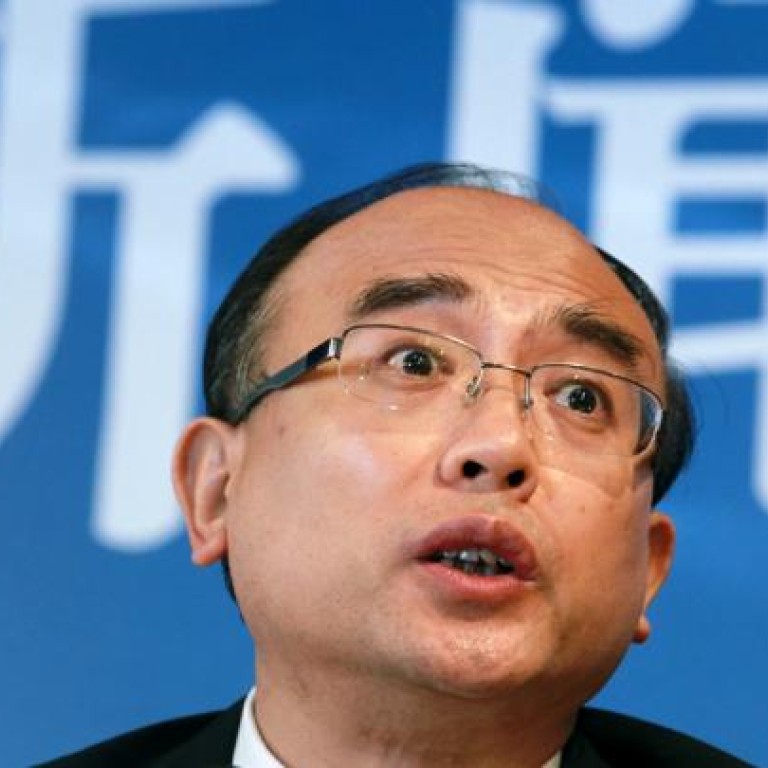
Shenzhen Mayor Xu Qin expects decades-low 9pc growth for 2013
The city's mayor forecasts GDP rise for 2013 of 9 per cent, the lowest since it became a special economic zone in 1979, amid a global slowdown
Shenzhen has set a GDP growth target of 9 per cent this year, the lowest in decades, with the city government admitting that double-digit growth rates are a thing of the past.

But export growth slowed by nine percentage points last year and profits of major industrial enterprises fell 5.5 per cent, according to the report, which was delivered by Xu at the opening of the annual session. Fixed-asset investment grew by 12.3 per cent, up from 10 per cent in 2011.
Xu said the slowdown followed declining global demand and the fallout from efforts to upgrade its economic model. His report said the government had forced more than 1,500 labour-intensive manufacturers to make way for service- and technology-driven industries.
Xu said the city government would do its best to ensure 9 per cent GDP growth, keep encouraging enterprises to move labour-intensive manufacturing out and attract more service- and technology-related investment.
He said little about co-operation between Hong Kong and Shenzhen, apart from a single sentence hailing the development of the Qianhai Shenzhen-Hong Kong co-operation zone.
Echoing comments by Communist Party General Secretary Xi Jinping on a trip to Shenzhen last month that signalled commitment to deep reform, Xu's report called on congress delegates to promote Shenzhen as a place of reform, enterprise and innovation. Xu said reform in Shenzhen would focus on the economy, administrative management and income. Few details were provided.
The city government is forecasting a 9.6 per cent increase in tax revenue this year, higher than its GDP growth target, but is only planning to increase spending on education, social welfare and public health by 7.5 per cent. The city will aim to cut energy consumption per unit of GDP by 4.25 per cent this year and water consumption by 5 per cent.
Yang Qin , a Shenzhen People's Congress deputy, said Shenzhen was likely to see single-digit GDP growth for the foreseeable future because it would continue to face severe economic challenges at home and abroad. "We will keep seeing a negative impact on exports and a flood of shutdowns in labour-intensive industries," Yang said.
Liu Luyu , another deputy, said he would seek full disclosure of financial details for the 2011 world university games, which cost 14 billion yuan (HK$17.3 billion). The games' director general, former Shenzhen deputy mayor Liang Daoxing , was placed under party investigation last month.

